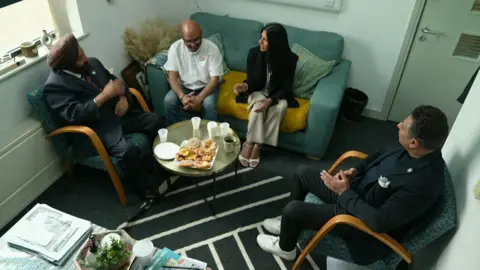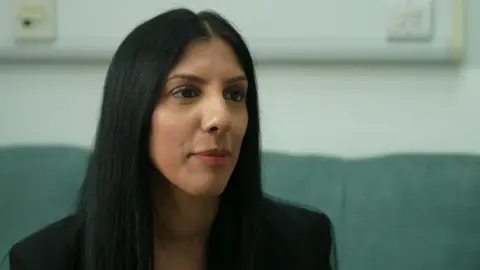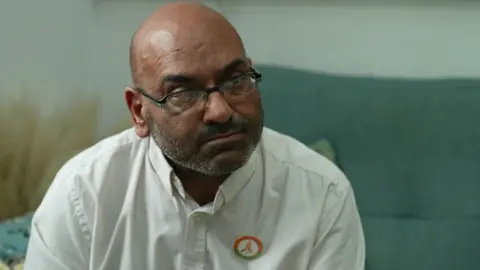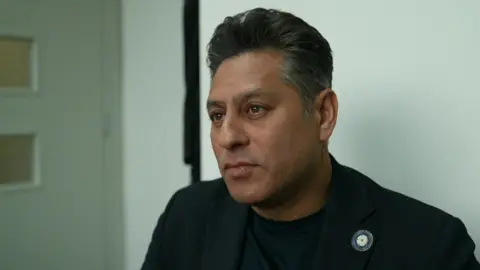Faith groups call for calm after India strikes
 BBC
BBCRepresentatives of different faith groups in Bradford have called for calm after India launched a series of strikes on sites in Pakistan and Pakistan-administered Kashmir.
The strikes came two weeks after a militant attack on tourists in Indian-administered Kashmir which saw 26 people killed. Pakistan has denied any involvement in that attack.
Sofia Buncy, a community activist in Bradford who also works with the Council for Mosques, said people felt "understandably very vulnerable and emotional" after the events of the past 24 hours.
"Many of us, especially here in Bradford, have ties to Pakistan, India and Kashmir. We have family members there and friends or family visiting there," she said.

Ms Buncy said after the news of the missile and air strikes emerged on Tuesday evening, there had been "a real feeling of panic for the wellbeing of those who are there".
There was also "grief in certain areas - people have not been able to get hold of family members".
"There have been blackouts in communication. So, there's a lot of fear," she said.
However, Ms Buncy added: "We've been very lucky in Bradford that over the decades we've had very strong inter-faith relations, very organic, and the door is always open.
"So, we were able to have those very honest and forthright conversations as Muslim, Sikh and Hindu communities last night and this morning: how do we work through this together, from a point of unity, from a point of understanding, and a point of reconciliation?"

Ravinder Dharni, a voluntary worker, businessman and chairperson for the Bradford Hindu Council, said it was important to show that the different communities in the city stood "shoulder to shoulder".
While Mr Dharni explained that Hindus in Bradford felt "distressed" about the "innocent people that are going to get involved in this crossfire", he said it was also important for communities in the city to show solidarity.
"We are more concerned that nothing happens here in our faith centres, in our groups and in our businesses," he said.
Mr Dharni said he was concerned about the "ripple effect" of the conflict, adding that different communities lived in "peace and harmony" in Bradford and all faiths worked collectively together.
"Bradford is a multi-cultural city and we know how important it is. People might remember us for the riots or being the curry capital of the UK, but we also want people to remember we have different faiths and work together," he said.

Meanwhile, Simmy Sekhon, a solicitor, businessman and spokesperson for the Yorkshire Sikh Forum, said it was a time for "compromise", not for "escalating situations".
"If there is one thing we can learn from VE Day, it is the 80 years of peace in Europe that happened after conflict ended," he said.
Mr Sekhon said he believed it was the time to "make new friends".
"The reality is, here in the UK, we live, work and play together and the circumstances in India and Pakistan must be resolved by politicians," he said.
"They can learn from the way we interact and try to understand each other, but compromise has to be reached."
Mr Sekhon added that he wanted people "across the divide line" to "share the love we share here in places like Bradford and in Yorkshire".
Listen to highlights from West Yorkshire on BBC Sounds, catch up with the latest episode of Look North.
